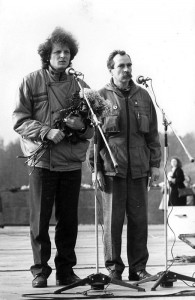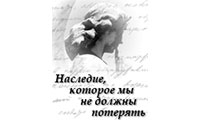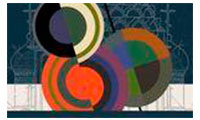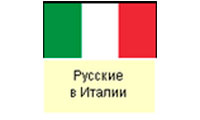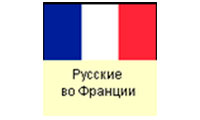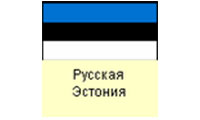Sergey Trofimov
Sergey Trofimov (19th of September 1894, Pskov governorate – 22nd of June 1941, Riga) – Russian political activist in the Pre-War Latvia, member of the 4th Saeima.
Sergey Trofimov was born in Emilovo village of the Vishgorod volost of the Ostrov uyezd of the Pskov governorate (nowadays – Gavri volost of the Pytalovo district of the Pskov oblast of the Russian Federation). Father – Ivan Trofomov (1865-?) was a well-known local government activist and a wealthy landowner. Mother – Vera (1870-1962) also descended from the Vishgorod volost.
Trofimov family had 6 sons and 2 daughters and all of them had different fates (about their lives I will be telling further on).
Sergey Trofimov studied at the Emilovo village school. In 1913 he graduated from Pskov Gymnasium. In the same year he enrolled in the Medical Faculty of the University of Yuryev (now Tartu). It seems that this decision was largely influenced by his uncle, Vladimir Trofimov. However, he did not manage to become a doctor due to being conscripted to the army at the beginning of the World War I. Later he was dispatched to the Caucasian front. He returned home only at the end of 1918 and almost immediately joined (as a private) the North-Western White Army of general Yudenich, where he aided his ill and wounded comrades.
In accordance with the peace treaty of the 11th of August 1920 between Latvia and Soviet Russia, the territory, on which Trofimov family resided, became a part of the Republic of Latvia.
After returning to peaceful life, Sergey Trofimov started working as an orderly in the village ambulatory. In the autumn of 1922 he decided to continue his studies and returned to Tartu University (the former Yuryev University). However, the documents, which could confirm his previous studies, had disappeared, so Sergey Trofimov decided to enroll in the Law Faculty of the same University. In 1926 he received the diploma. In the same year he married a graduate of the Medical Faculty - Lidia Glazova. However, their family happiness did not last long. In 1927 Lidia died during the childbirth and left the young widower with a daughter Lidia (1927-2000). The girl was actually left by her grandparents. After the end of the World War II, when the most of the family was persecuted, Lidia found herself in a difficult situation. We obtain only sparse information about her fate. All we know is that she worked as a labourer on the shoe factory in Riga. Judging by her surname “Guseva” she was married. However, no information about her husband and existence of any children is available.
Sergey Trofimov was a fillister of a Russian student fraternity “Fraternitas Slavia” by Tartu University.
It seems that having no perspective in the field of law (his diploma was not recognized in Latvia, so he had to work as a secretary of the board of a cooperative insurance company), Sergey Trofimov turned to the politics. He also felt it to be his field. At that time Russian citizens of Latvia did not have any, more or less, serious political parties. The structuring of Russian political forces had been taking place very inertly and Trofimov understood, that the fact of being a native inhabitant of Jaunlatgale region meant a significant ace up his sleeve. Almost a fourth part of the Russian population of Latvia was centered in that region.
On the 5th of August 1928 the 1st conference of the new political party – Russian Peasant Union (RPU or in Russian: Русское крестьянское объединение (РКО)), took place in Rezekne (a city in eastern Latvia). This was the first serious attempt to create a Russian peasant party in Latvia. S. Trofimov became its chairman. In the autumn of the same year the party participated in the elections into the 3rd Saeima. However, the elections were not successful for it: nobody from RPU entered the Saeima.
However, Trofimov managed to become a chairman of Augshpils district administration. In 1931 he was re-elected to that position.
S. Trofimov continued persistently searching for his place in the political specter of Latvia. The main problem was that local Russian politicians faced a dilemma: on one hand, due to their political views, they aspired towards the right-conservative wing, but on the other hand, they could not ignore the moods of their quite conservative electorate, which however, due to certain discomfort in the fields of national and agrarian policy of the state, aspired towards the left wing.
The need in the “golden middle” was obvious and Trofimov tried to create it. Compilation of a program was a hard task. The experience of Russian political parties, which existed before the revolution, did not leave any impact and was also not acceptable in the new political circumstances. Because of that, local Russian politicians were forced to turn to the political experience of other countries with Russian minorities. In 1927 Sergey Trofimov met Sergey Maslov and through him set a connection with the Labour Peasant Party (LPP, Трудовая крестьянская партия (ТКП)) in Prague (Czechoslovakia). These short-term contacts with Maslov played a fatal role in Trofimov’s (and not only his) fate. The peak of activity of the LPP took place at the end of 1920s – the beginning of 1930s (due to the collectivization, which had been taking place in the USSR at that time). It is natural that the people, who lived in the Soviet border areas became targets as potential “conductors” of these ideas on the territory of the USSR.
On the 16th of February 1930 the 2nd congress of Trofimov’s party took place in Jaunlatgale (Pytalovo, from 1925 till 1937 – Jaunlatgale, from 1938 till 1945 - Abrene; now the town of Pytalovo of the Pskov oblast of the RF). The influence of LPP ideas was very obvious there.
On the 25th of January 1931 the 3rd congress of the party took place with 130 rightful delegates participating in it. The most essential part of Trofimov’s speech, which he dedicated to finding possible allies, was a clear evidence of the seriousness of his political intentions. On the 9th of August 1931 the 4th congress of the RPU took place in Rezekne. The main pre-election points of the party were as follows: reduction of state expenditures by reducing the number of civil servants, as well as salaries of the high-ranking state officials; relief of taxation for the peasants; increase of linen prices; provision of additional lands for the low land peasants.
Elections into the 4th Saeima (the October of 1931) were successful for S. Trofimov. The party received 8 298 votes in Latgale (the Eastern part of Latvia) and Trofimov finally received the desired deputy’s office.
The work of the 4th Saeima (which was the last democratically elected parliament in the Pre-War Latvia), was taking place in a difficult atmosphere. World economic crisis, growth of nationalistic moods, general situation in Europe – all of this had an impact it. Narrow lucrative interests and corruption worsened the crisis of Latvian parliamentary system and pushed the country into the abyss of dictatorship. In such situation Trofimov had to start his work as a member of parliament. The young politician (he was 37 years old) faced a difficult task to find allies, with whom he could form a faction. Along with Trofimov, 5 other Russian deputies were elected into the 4th Saeima: Archbishop Janis (Pommers), I. Korniliev, M. Kallistratov, T. Pavlovsky and L. Shpolyansky.
Already during the first days of the new Saeima, Sergey Trofimov declared, that formation of a united Russian faction is unlikely and offered to form a block of Russian deputies on national and cultural matters instead. At the same time, he suggested to consider formation of a Latgalian Economic Block, which would also defend interests of Russian peasantry.
Trofimov actively searched for allies among Russian and Latgalian MPs. Unlike other deputies of Russian nationality, he knew Latvian language very well, which allowed him to find mutual understanding with his Latvian colleagues. However, he was also forced to defend himself from accusations in disloyalty, which sounded more and more often in the Saeima and beyond.
In 1932 S. Trofimov for the first time participated in the work of the Congress of National Minorities in Vienna on behalf of Latvian Russians. Before that, representative of the Russian minority of Latvia did not consider their participation as necessary. In Vienna, Trofimov noticed, that the distinctive national and cultural life of Russian minority in Latvia was endangered.
In his speech during the extraordinary session of the Saeima on the 22nd-23rd of August 1933 Trofimov pointed out that: “In their philosophical essence communism and national-socialism almost correspond with each other. Only political forms of this essence differ, however, both of them increase amounts of enemies of democracy and state.”
In the course of work of the 4th Saeima, considerable changes among Russian deputies had been taking place. On the seat of the Saeima, which took place on the 31st of January 1933, formation of Russian Peasant Faction was officially declared, with S. Trofimov, T. Pavlovsky and I. Korniliev joining it. In a short period of time, Russian Peasant Faction managed to overcome the mistrust between Russian and Latvian peasantry, having persuaded Latvians that “it has more reasons to cooperate with Russian peasantry than with the parties of urban bureaucrats”,- the Voice of People. The Herald of Russian Peasant Faction of the Saeima, 1933, July, #1.
It is notable, that Sergey Trofimov managed to achieve support from the Archbishop Janis (Pommers).
S. Trofimov’s group made a considerable step towards the rapprochement with Latvian and Latgalian parties, especially, with the Peasant Union of Karlis Ulmanis.
This position was really helpful to him after Ulmanis’s coup d’état of the 15th of May 1934. Trofimov appeared among the supporters of the new regime. He received the position of an adviser on the matter of Russian schools at the Ministry of Education. This position was established after the abolition of Russian Minority Department of the Ministry of Education, and consequently, of the autonomy of Russian schools. However, Trofimov no longer showed any particular activity.
At the end of July of 1940 he was dismissed from this position by the new Soviet authorities. He unsuccessfully tried to employ as a school teacher…
On the 10th of August 1940 Sergey Trofimov was arrested by the NKVD. The main point of charge was his connection with the Peasant Labour Party and its leader S. Maslov. Significant is the fact, that at the interrogations S. Trofimov pointed out that only he and Boris Evlanov were aware of his connections with the PLP, while other members of the Central Committee of the RPU were not informed about that.
The investigators were persistently seeking his confessions in helping to transfer the PLP activists to the territory of the USSR. The protocol of the interrogation, which happened on the 14th of October 1940 and which took more than 6 hours, is dedicated to this matter.
S. Trofimov admitted the fact of his connections with Maslov and PLP, as well as the fact that several times he provided aid in sending printed materials to the USSR, however he rejected his participation in sending people across the border.
On the 13th of May 1941 Sergey Trofimov was sentenced to death at the closed session of the Court Martial of the Special Baltic Military Region. The sentence was carried out in the vicinity of Riga, not far from the Baltezers lake on the first day of war – on the 22nd of June 1941.
About the fate of S. Trofimov’s relatives
If taking into account the metrical excerpt about the baptism of their son Sergey in 1894, Ivan Trofimov (1865-?) and his spouse Vera (1870-1962) were counted as peasants residing at Ignashkovo village, than in the school certificate, which was issued to Sergey in 1913 after he graduated from the Pskov Gymnasium of Alexander I the Blessed – his father was mentioned as an honorary citizen. Before the revolution Ivan worked as an insurance agent by the Zemstvo of Pskov Governorate.
From 1931 to 1934 Ivan Trofimov was a member of Augshpils (Vishgorod) Volost Council. It is also known, that he was an honorary member of the parish council of the church of Saint Boris and Gleb.
At the end of the War Ivan and Vera left Emilovo, but remained in Latvia. They spent the last years of their lives with the family of their son Vladimir in the town of Preili. (LSA, f. 1986, inv. 2, f. P-5300).
Vladimir Trofimov (Sergey’s antipode) (1891–1972) in accordance with the seniority, he was to inherit the estate of his parents, even despite the fact that he never strived for it. In 1911 he graduated from Pskov Gymnasium and in the same year enrolled to the Warsaw Veterenary Institute, however due to the War was forced to move to Kazan, where in 1915 he received his diploma. Later, he returned to his parents in Emilovo. From 1919 to 1921 Vladimir served as a vet in the Red Army. After the end of the Civil War he returned to Latvia and settled in Karsava (a town approximately 40 km away from his parents’ home), where he worked as a veterinarian until 1940. Later he became a head of the local veterinary clinic. Lead a quiet life. Never participated in political and social activities. In 1931 he married a girl of Jewish descent Slava Kalgut. In 1936 his son Cyril was born. However, happy and quiet life was ruined on the second day of the War – on the 23rd of June 1941 chekists came and took Vladimir away. On the next day his spouse went to Ludza (the local center) in order to inquire about the reason of her husband’s arrest. There she only received an answer that it was due to a denunciation. Since the frontline was approaching, Vladimir Trofimov (along with other inmates) was sent to the town of Yeniseysk of the Krasnoyarsk krai (region). His brother Alexander appeared in the same prison. The first interrogation in Yeniseysk prison took place only on the 19th of January 1942. After several futile interrogations Vladimir Trofimov was sentenced by the Special Council to 5 years in prison camps. However, already in the autumn of 1945 he managed to return home and to resume his veterinary practice. This return, though, was not a happy one: he found out about the death of his son and wife. According to the data of a Latgalian historian Nikolai Nikulin, everything went as follows: “With the German invasion Slava Trofimova went to Emilovo. Her husband’s parents promised to bargain with the local police about saving her life. The policemen came to the Trofimovs, spent some time there, had a meal and some drinks…But in a few days they informed their hospitable hosts, that the command allowed to leave alive only the grandson, while his mother was “the subject of an annihilation”. Slava did not believe their promises and decided to share the fate with her child” (Memories of Karsava. – Rezekne, 2011, pp. 160-162).
After becoming aware of the fate of his relatives, Vladimir did not remain at his home place. At first he worked in Daugavpils uyezd, than – till the end of his life, resided and worked in Preili (the local center in the Eastern Latvia). He sustained his once wealthy parents, who lost, not only their property, but also most of their children. They were buried at the Preili cemetery. Vladimir married for the second time and had two daughters from that marriage: Tatiana and Natalia. He passed away in 1972 in Preili. In 1982 his second wife Tatiana Trofimova managed to rehabilitate him posthumously. (LSA, f. 1986, inv.2, f. P-5300).
Alexander Trofimov (1901-1942) – obtained only secondary education Pskov High Real School. Served in the White Army under the command of general Yudenich. Was preoccupied with agriculture and, as it seems, claimed to be an inheritor of Trofimov’s property. Was not married. From 1933 to 1934 was a member of Aizsarg organization, which he voluntarily left. Alexander Trofimov was arrested on the 13th of March 1941. And just like his brother Vladimir, after the beginning of the War, was sent to the Krasnoyarsk krai (region), to the prison of Yeniseysk. At the interrogations he denied membership in his brother’s party “Russian Peasant Union”, however he confessed about certain connections with it. When in 1931 Emilovo was visited by an emissary from Prague, who asked Alexander Trofimov to help him in sending literature to the USSR via an air balloon, Alexander, according to his testimonies, refused to do it. However, the decision of the Special Council regarding Alexander Trofimov’s fate was harsh – a death penalty. The sentence was carried out on the 13th of March 1942 (LSA, f.1986, inv.2, P-6729).
Boris Trofimov (1903–?) - served in Yudenich’s North-Western White army. Worked at his parents’ farm. From 1931 to 1933 studied in Belgium at an agricultural institute, where received a profession of an agronomist. Worked at Karshilovo farmstead, which belonged to his parents. In 1941 refused from his share of the farm and started working as an agronomist. In 1944 Boris Trofimov and his wife Nadezhda (nee Lupinina; 1908-1999) and their children: Yuri (1929-2009), Melissa (Militsa), Ivan and Vera fled to the West. The family spend several years in a refugee camp in Germany. Two more children: Maria and Sergey, were born there. At the end of 1940s or in the beginning of 1950s the family received a permit to move to the USA. It is known that Yuri visited his cousin Lidia Guseva-Trofimova and his aunt Nina Shigina in Riga in 1971, 1973 and 1990s (LSA, f. 1986, inv.2, f. P-5300).
There were two more sons, however, the information about them is more than insufficient.
Ivan Trofimov – most probably, the oldest son – worked as a doctor in Penza governorate (like his uncle Vladimir), where he died from a typhoid fever in 1928 or in 1929.
Aleksey (according to other information – Constantine Trofimov) – died in 1923 or 1924 in Emilovo.
Trofimov family had two daughters:
Nina Trofimova (1905–2001; nee Shigina) – from 1924 and up to her death lived in Riga, where she graduated from a gymnasium and Russian University Courses (LSA, f. 1986, inv.2, f. P-5300).
Natalia Trofimova (nee Ignatyeva), worked as a teacher in Augshpils volost. Her husband was a neighbor of her family. In 1944 the Ignatyevs fled to the West (LSA, f. 1986, inv.2, f. P-5300). We may assume, that the family and their descendants settled in Australia
Conclusion: the family had 6 sons and 2 daughters. 2 of them underwent death penalty by Soviet authorities. 1 was persecuted by Soviet authorities but managed to survive. The wife of 1 of the sons was executed by the Nazis together with her son. 1 son with his family and 1 daughter with her family fled to the West.
Tatiana Feigmane
Sources of information:
Latvian State Historical Archive - further LSHA, f.1632, inv.1, f.18909, 22042.
Lattvian State Achive - further LSA, f. 1986, inv.1, f.34798.
LSA, f.1986, inv.2, f. P-5300.
LSA, f. 1986, inv.2, f. P-6729.
LSA, f.1986, inv.2, f. P-2732.
Татьяна Фейгмане. Сергей Иванович Трофимов / Tatiana Feigmane. Sergey Trofimov
Татьяна Фейгмане. Русские в довоенной Латвии. - Рига, 2000. / Tatiana Feigmane. Russians in the Pre-War Latvia
Николай Никулин. Забытое имя ( о брате С.И. Трофимова). - В кн. Воспоминания о Карсаве. - Резекне, 2011. /Nikolai Nikulin. The Forgotten Name (about the brother of S. Trofimov). – In the book “Memories of Karsava”. – Rezekne, 2011.
Татьяна Фейгмане. Некоторые факты из жизни русского населения бывшего Яунлатгальсккого уезда в межвоенной Латвии. Шестые Псковские региональные краеведческие чтения. Печоры 9-11 октября 2015 года. – Книга 1. – Псков-Москва, стр. 282 -301. Tatiana Feigmane. Certain Facts from the Life of Russian Population of the Former Jaunlatgale Region in the Pre-War Latvia.
The material was supplemented with data and images, received from the grandson of Boris Trofimov - Misha Mutizwa (USA).


